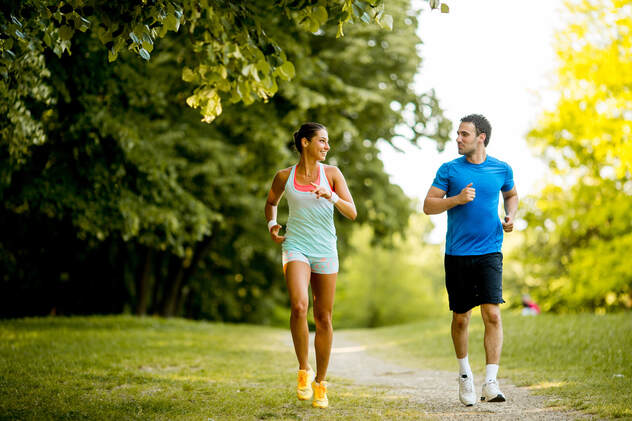Our Chimp can often sabotage the most positive of plans to get fit. Understanding a bit about our brain, neurochemistry and the psychology of what motivates us can make the difference between quitting early and a life-long new healthier you and all the knock-on good stuff that goes with it. 1. Know that it's going to be a struggle to start with but then it will get easier and more enjoyable...Start slow with whatever sport or activity you've chosen to do. Ask yourself the following questions:
2. Look forward to the feel-good buzz you will get from exercise.Remember a time when you felt really good having gone out for a good walk or after a bike ride or session in the gym... How good did that feel? How happy were you that you got out? These feelings we get from good exercise are courtesy of our mammal brain (the Limbic System). The four main happy hormones are Dopamine, Endorphin, Oxytocin and Serotonin. You can read more about the psychology and neurobiology of these happy hormones in the book 'Habits of a Happy Brain' by Loretta Graziano Breuning, PHD. 'Runner's high' is attributable to the release of endorphins that your brain experiences when you physically exert yourself. They help relieve pain and stress. Physical activity also stimulates the release of dopamine, noradrenaline, and serotonin, all of which play an important role in regulating your mood. In the last blog post I talked about Human Growth Hormone (HGH) aka 'the fitness hormone' which is released in response to vigorous/exhaustive exercise. This is the way to maintain a fit and strong body and improve your quality of life at almost any age. In a nutshell, the fitness hormone will help you lose weight, tone up not just your muscles but your skin too, fend off middle aged spread and feel more energetic. Researchers have found the best way to maximise the release of this hormone with cardiovascular exercise and that's to do 30 second sprints with rest intervals of 90 seconds and repeat this 8 times. This is a seriously strenuous workout and it is important to build up to this type of activity slowly. 3. Choose an Autotelic activity.An autotelic activity is one that in it's self is compelling and rewarding. It's so important to find an exercise that you really enjoy. So many people go to the gym and loathe it and so their motivation to keep going wanes despite the fact that they may enjoy the results. Adventure sports are a classic example of autotelic activities, as are walking and wild swimming for example. When you really enjoy something your brain will release your happy hormones and that will be the continual motivation bonus you need to keep up your new habit of exercising. 3 new habits......which take very little effort and by the end of just one week you'll feel even better about yourself, motivated and may possibly have dropped a couple of lbs.
If you're starting from 'really unfit' keep it simple...
Trouble shootingThe above example of starting to get your fitness up is assuming that you don't have any conditions or problems with your body that would prevent you from walking or trying out intermittent fasting. If you're at all unsure as to whether this is good advice for you or not you're welcome to get in touch with me or seek advice from another healthcare professional. Good luck and let us know how you get on!
Comments are closed.
|
AuthorSarah Bedford Recent PostsCategories
All
|



 RSS Feed
RSS Feed


